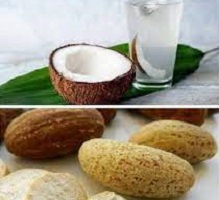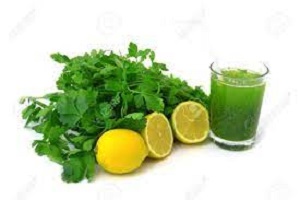Palm Wine Elixir: Nature’s Gift of Culture, Healing & Celebration
Palm Wine Elixir: Nature’s Gift of Culture, Healing & Celebration

Introduction: What Is Palm Wine?
Palm wine, also known as “toddy,” is a milky-white alcoholic beverage made from the fermented sap of various palm trees, including oil palms, raffia palms, and coconut palms.
It is cherished across tropical regions, especially in Africa, Southeast Asia, and parts of the Caribbean, for its unique taste, cultural symbolism, and potential health benefits.
Personal Reflections: Sweetness and Stories in a Cup
My memories of palm wine are both wild and heartwarming. I grew up in Anambra State, Nigeria, a home of Nkwu Enu, the prized palm wine tapped from tall palm trees.
It’s a staple in my hometown, often enjoyed with spicy Abacha (African salad). We also have Ngwo, a less popular variant tapped from shorter palms.
Any visit to my father’s village is never complete without palm wine.
Every meeting, every celebration, every gathering in the East features a calabash of palm wine paired with kola nuts and spicy peanut butter paste.
One unforgettable memory? When I suffered from measles as a child, my father used palm wine as medicine.
Every evening, he returns from work, gargles a mouthful of palm wine, and spits it onto my body. I scream in pain, convinced I’m about to join my ancestors.
Yet, miraculously, I heal without setting foot in a hospital.
Cultural Significance: The Sacred Drink of the Ancestors
Palm wine is more than a refreshment; it is a sacred ritual. In many African traditions, palm wine symbolizes life, unity, and ancestral connection.
- It plays a central role in ceremonies, marriages, libations, and community meetings.
- Among the Limbas of Sierra Leone, it’s said: “He who brings poyo brings life.”
- In Nigeria, fathers of the brides use it to bless marriages, and Ijaw priests offer it to their gods.
Palm wine acts as a spiritual bridge connecting the living and the divine.
From Palm Wine to Ogogoro: The Magic of Distillation
The journey of palm wine doesn’t end at fermentation. When aged and distilled, it becomes Ogogoro—a powerful local gin revered across Nigeria.
- Ogogoro is made by distilling fully fermented palm wine.
- It serves both economic and cultural purposes.
- In traditional rites, it is poured as a libation or used in spiritual cleansing.
Whether in its sweet, fresh form or fiery distilled version, palm wine remains a core element of identity.
How Palm Wine is Made: Nature and Craftsmanship
Palm wine is harvested by tapping the sap from unopened palm flowers.
The sap flows into containers, usually bamboo tubes or an earthen pot, where natural yeast and bacteria trigger fermentation.
Over time, the sugar converts into alcohol, increasing its strength.
Freshly tapped palm wine tastes sweet and mild. As fermentation progresses, it grows tangy and alcoholic, eventually reaching up to 9% alcohol content.

Global Names and Regional Variations
Palm wine goes by different names around the world:
- “Tuba” in the Philippines
- “Nuou dua” in Vietnam
- “Tuak” in Indonesia
- “Tombo” in Cameroon
- “Palmy” or “Palm wine” in Nigeria
Its taste and aroma vary based on palm species, local microbes, and harvesting methods.
5 Amazing Health Benefits of Palm Wine
Despite being a traditional beverage, palm wine offers scientifically recognized health benefits, especially when consumed fresh and in moderation.
1. Fights Cancer
Palm wine contains riboflavin (Vitamin B2), an antioxidant that helps neutralize cancer-causing free radicals.
2. Improves Eyesight
With Vitamin C and Thiamine (Vitamin B1), palm wine supports eye health and may explain why village elders often enjoy sharp vision into old age.
3. Enhances Skin, Hair, and Nails
Rich in iron and B-complex vitamins, palm wine boosts skin vitality, strengthens hair, and aids tissue repair.
4. Supports Heart Health
Moderate consumption lowers the risk of cardiovascular issues.
Potassium in palm wine regulates blood pressure and strengthens the heart, according to a 2008 study by Lindberg and Ezra.
5. Boosts Breast Milk Production
In Nigeria, Ghana, and Cameroon, nursing mothers drink palm wine to stimulate lactation. Many say it works like magic when breast milk is low.
Caution: Drink Fresh and Moderately
While palm wine is healing, over-fermented or adulterated versions can be harmful.
- Avoid palm wine with artificial preservatives or sweeteners.
- Stay away from stale, overly fermented wine—it is like spoiled fruit.
- Excessive intake can harm your liver and overall health.
Choose fresh, untainted palm wine, and enjoy it in moderation.

Palm Wine Elixir Conclusion: A Drink of Legacy, Health, and Harmony
Palm wine isn’t just a drink; it is a story, a ritual, a cure, and a celebration.
From the hills of Imo State to coastal Ghana, from festive tables to sacred altars, this fermented elixir continues to bind generations.
So next time you raise a calabash, remember: you’re sipping a symbol of ancestry, wellness, and the vibrant soul of tradition.


